There are many monuments in La Paz, like the most famous Bolivian Cultural Places, and Landmarks. We’re constantly expanding this list of important monuments in La Paz and you can view the current selection below. We may not cover them all but our database of ancient monuments in La Paz is growing all the time. So, if you know of other about historic monuments in La Paz, see below a complete list of that:
List of Monuments List of La Paz
1. Basílica de San Francisco
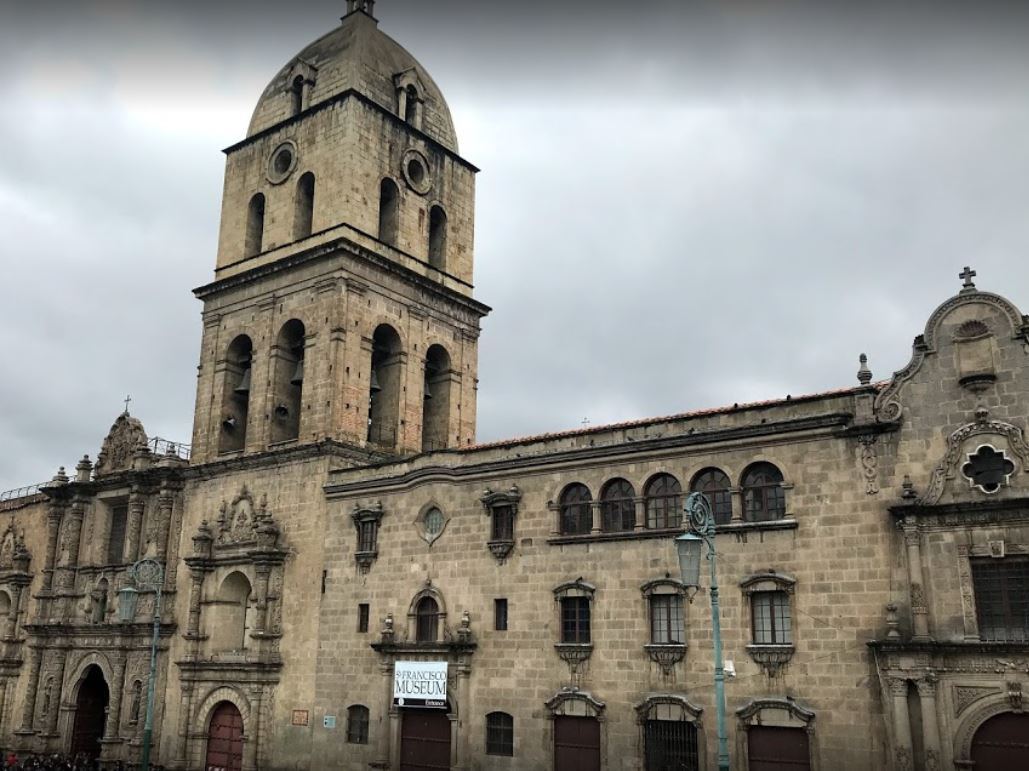
A landmark church that serves as one of the most significant houses of worship in the city located right in the heart of La Paz. The church was built in the 18th century over a period of 10 years by Aymara workers whose influence led to the inclusion of indigenous symbols such as birds, dragons and snakes that paid homage to the Inca and Tiwanaku empires. The interior is more neo-classical and contains a mix of both indigenous and Catholic artwork while the exterior was constructed in a baroque mestizo style. Entry to this religious monument in La Paz is free, although those wishing to enter the monastery, bell tower and catacombs must pay BOB35 (US$5) which includes a guided tour in either English or Spanish.
Address: 173 Sagarnaga, Macrodistrito Centro La Paz, Departamento de La Paz.
2. Catedral Basílica Menor de Nuestra Senora
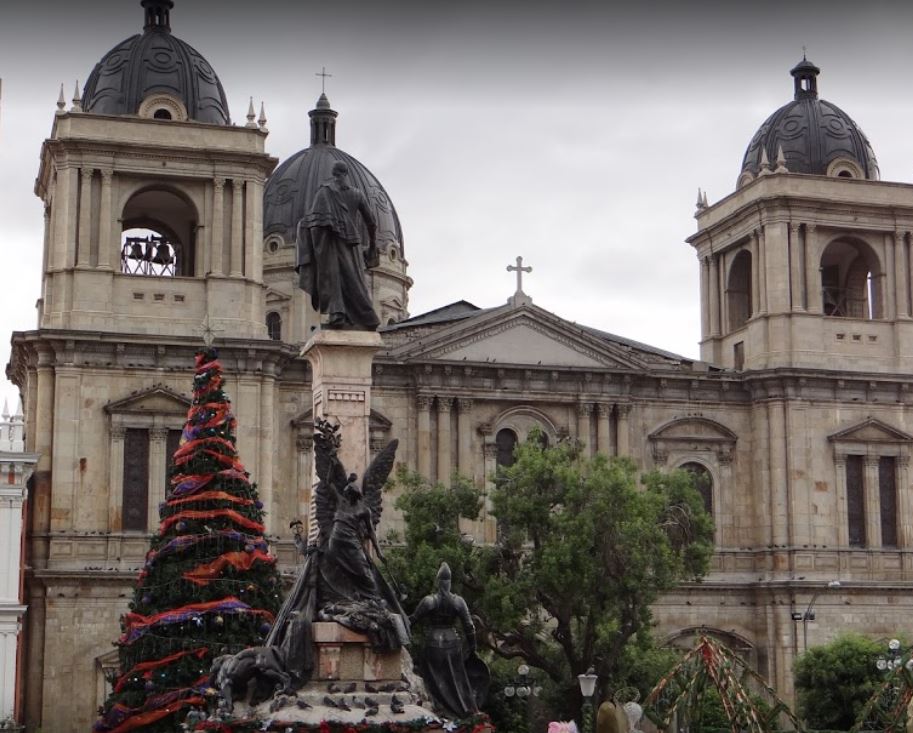
The city’s other great church and one of the popular monuments in La Paz can be found on the corner of Plaza Murillo, La Paz’ official central plaza. Construction began in the 1620s and took over 70 years, although it was not to last. Due to poor construction methods and materials, dangerous cracks started to appear so the decision was made to knock it down and start again from scratch in 1831. In 1925, the new church officially reopened to mark the centenary of independence, although work was far from finished. It wasn’t until 1989 that the building was finally completed, more than 150 years after construction began. The end result features high domed ceilings and sturdy pillars built in a neoclassical style and is rather magnificent. An intricate stained glass window is one of the more remarkable features that depicts La Pazn politicians receiving divine intervention from God – rather poignant considering the country’s turbulent past. The church is open to the public every day, but photos are not permitted.
Address: Junin, Macrodistrito Centro La Paz, Departamento de La Paz.
3. El Palacio de Gobierno
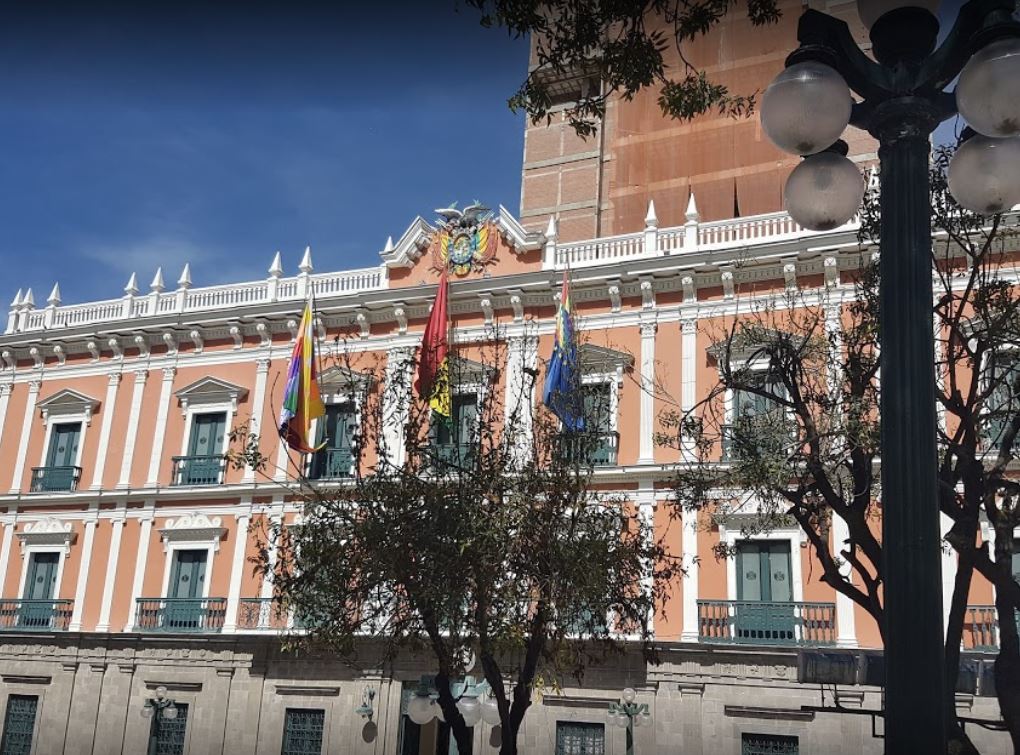
La Paz’s Government Palace is right next door to the cathedral, affectionately known as El Palacio Quemado and sometimes referred as the Burned Palace too because it was almost burnt to the ground during a violent revolution in 1875. The building has seen a lot of history since its construction in 1825 as the official residence of the president. A number of serving presidents have died here by way of suicide, assassination or death by lynch mob, the most famous of which was Gualberto Villarroel who was dragged into Plaza Murillo by an angry mob and hung from a lamppost. The neoclassical structure is pleasing to the eye, featuring bright pink colored walls that contrast with the white pillars and awnings despite its sordid history. Although this is inaccessible to the public for obvious reasons, the interior features all the grandeur you would expect from a presidential palace or national monument in La Paz.
Address: Macrodistrito Centro La Paz, Calle2, Departamento de La Paz.
Read More: Monuments in Benin
4. Asamblea Legislativa Plurinacional
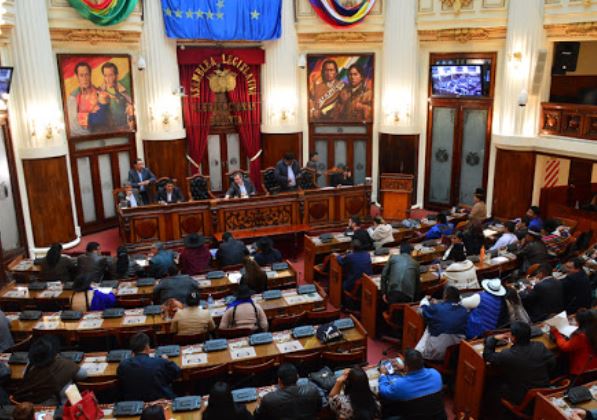
The current Plurinational Legislative Assembly on Plaza Murillo was originally intended to be La Paz’s Central Bank, but was later remodeled into a convent and then a university. These days it serves as the house of congress, where representatives from the upper and lower house make important decisions about the country’s future. It houses the congressional archive and library, although its most notable feature of this old monument in La Paz is an analog clock on the exterior that runs backward. In 2014, this rather unusual modification was implemented as a way to “recover La Pazn identity… and break away from the hegemony of the north.”
Address: Macrodistrito Centro La Paz, C. Bolivar, Departamento de La Paz.
5. Wiphala Community Housing
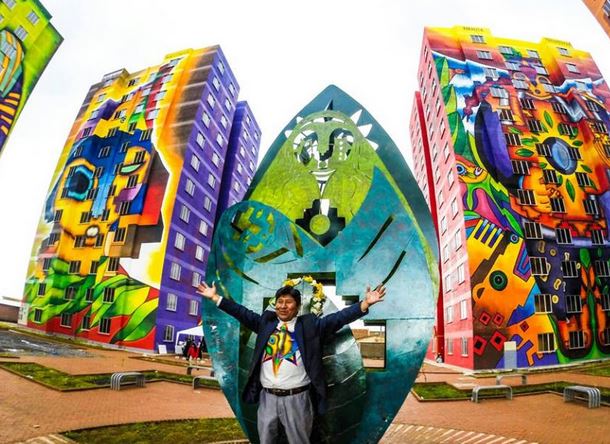
Wiphala Community Housing is a standard block-shaped apartment complex situated in the depressingly poor outskirts of El Alto. What makes the complex so special are the massive murals adorning each side that was commissioned by the famous Aymara artist Mamani Mamani with funding from the federal government. With vibrant, happy colors depicting mystical indigenous symbolism, it is a sight to behold in this otherwise sparse, depressing region. This famous monument in La Paz seeking the attention of every tourist from across the planet and whoever comes to La Paz definitely explores it. If you want a guide you can hire but we would recommend you to take a self-guided tour over here.
Address: Condominio Whipala, El Alto, La Paz.
6. Central Station
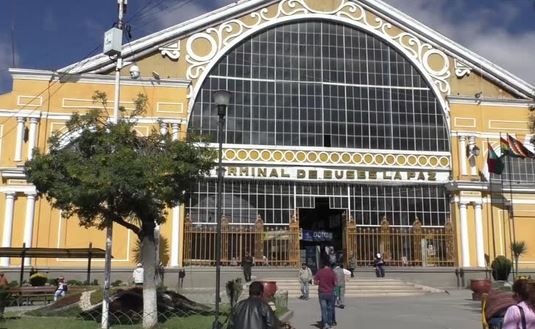
Almost all visitors to La Paz probably won’t think anything of this huge domed building and will pass through it. This giant and airy construction was originally designed as a train station by Gustave Eiffel (of Eiffel Tower fame). Gustave Eiffel was one who designed a number of buildings throughout South America, including La Paz’ Museum of Contemporary Art. So if you are interested to know more about the history of La Paz we would like to suggest you take a look at this iconic monument in La Paz once in your life. The entry fee is absolutely free and you can also hire a guide.
Address: Av.Peru, La Paz, Departamento de La Paz.
7. Monument Pedro Domingo Murillo
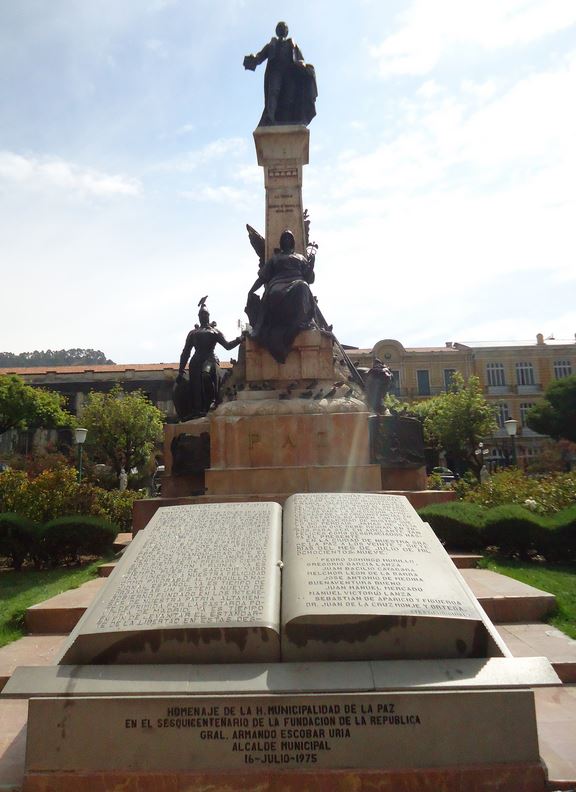
The present memorial commemorates the revolt which was held on July 16, 1809, against the Governor-General of the Viceroyalty of the Rio de la Plata and it proclaims independence. Located on the center of the square of the same name, Pedro Domingo Murillo monument pays tribute to one of the most iconic characters of the independence of La Paz. Formerly known as Place des Armas, Plaza Murillo now bears the name of Murillo as it was executed here in the early 1800s This most famous monument in La Paz is made of bronze and is about three feet high, it symbolizes independence and struggle of the entire people of La Paz.
Address: Plaza Murillo, Socabaya, La Paz.
Read More: Monuments in Bolivia
8. Iglesia de San Francisco
In 1548, construction on the original San Francisco Church began on this site one year before the founding of La Paz. The church collapsed under the weight of snow in 1610 and was reconstructed in 1784. With indigenous symbols such as masked figures, snakes, dragons and tropical birds, San Francisco’s Baroque façade is richly decorated. On the Plaza de San Francisco in front of the church, a similar blending of traditions can be seen: a modern sculpture of rock pillars and stone faces honors La Paz’s three great cultures: the ancient people of Tiwanaku; the Incas; and modern La Paz. The interior of this important monument in La Paz is Neoclassical in style, featuring small cedar altars decorated with gold leaf designs. For fine views of the church rooftops and the city of La Paz, the roof can be climbed.
Address: Plaza San Francisco at Avenida Mariscal Santa Cruz, La Paz.
So far we have discussed the best monuments in La Paz, which contains the proper information regarding all the top monuments in La Paz. I hope you might have loved reading this article and if you love to know more about La Paz then kindly head to our other articles as well which will help you to get knowledge about La Paz.
The post Famous Monuments of La Paz | Most Visited Monuments in La Paz appeared first on World Tour & Travel Guide, Get Travel Tips, Information, Discover Travel Destination | Adequate Travel.